How to Freeze Asparagus – Step by Step
This post may contain affiliate links. Read my full disclosure here.
During asparagus season we eat quite a bit fresh asparagus, but we also save some for later use. Freezing asparagus is a quick and easy way to preserve the harvest.
See “How to Grow Asparagus” to help get your own patch established.
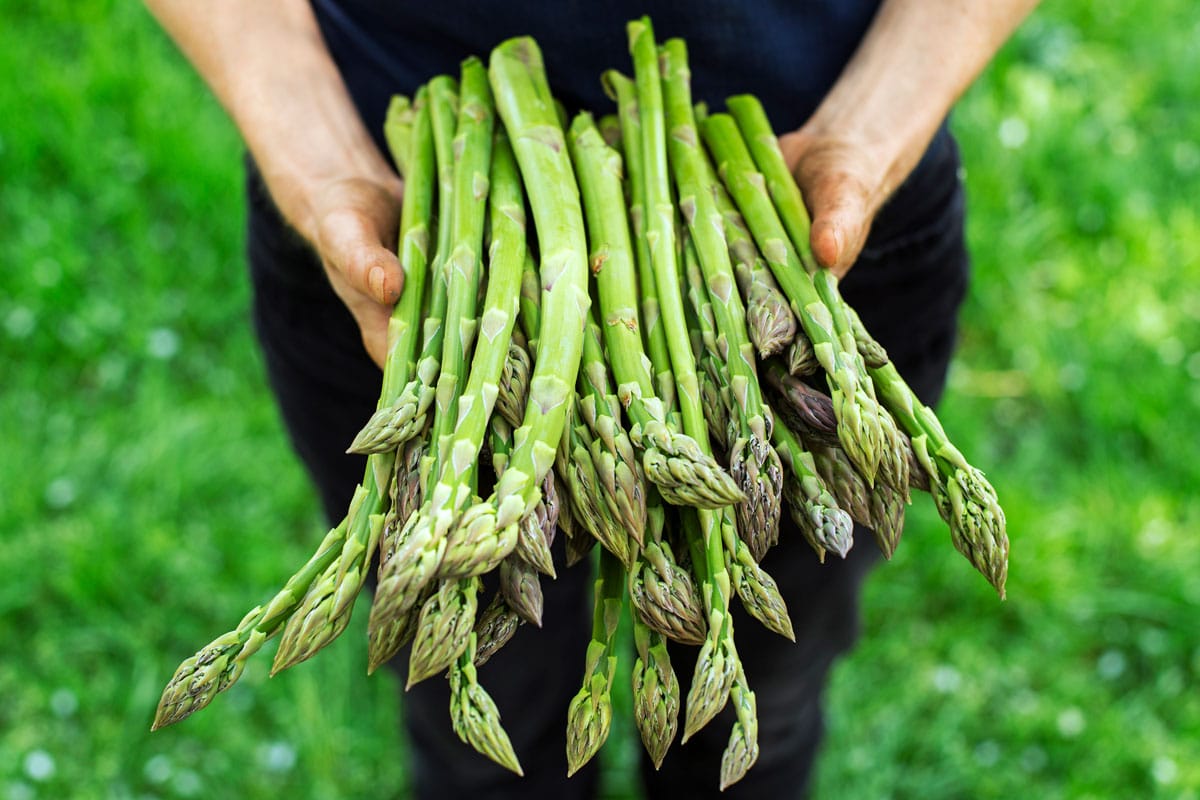
How to Freeze Asparagus – Step by Step
Keep in mind that the texture of frozen asparagus will not be the same as fresh asparagus. The freezing process damages the cell walls, giving it a softer texture. After freezing, it works best in soups, casseroles, quiches, and other cooked dishes.
For stir fries, don’t bother to thaw the asparagus before use. Just add the frozen asparagus during cooking and allow it to heat through. We often saute ours in a bit of butter or olive oil and salt for a simple side dish.
Prep the Asparagus
Select young, tender asparagus spears with tightly wrapped tips. Wash thoroughly and sort into sizes. Trim bottoms if needed. (See “How to Cut Asparagus” for trimming advice.)
The part of the stalk closest to the ground is often tough. You’ll feel the difference between tough and tend parts as you move the knife through.
Cut into bite sized pieces, or leave whole. Think ahead to how you want to use your asparagus.
Blanching the Asparagus
You can freeze asparagus without blanching, but I don’t recommend it. Blanching deactivates enzymes that break down the vegetables, helping to preserve the color and flavor.
To blanch the spears, bring a pot of water to a boil. Prepare a large bowl of ice water for an ice bath. Add the asparagus to the boiling water.
Boiling times for blanching:
- Leave small spears in the water for 1 1/2 minutes
- Medium spears for 2 minutes
- Large spears for 3 minutes
Remove the asparagus from the water with a slotted spoon or tongs. Plunge it into the ice bath to stop the cooking process.
Freezing the Asparagus
Once the asparagus is cool, drain well. I have a heavy duty salad spinner to remove moisture. Another option is to pat it dry with a kitchen towel after draining in a colander.
Would you like to save this?
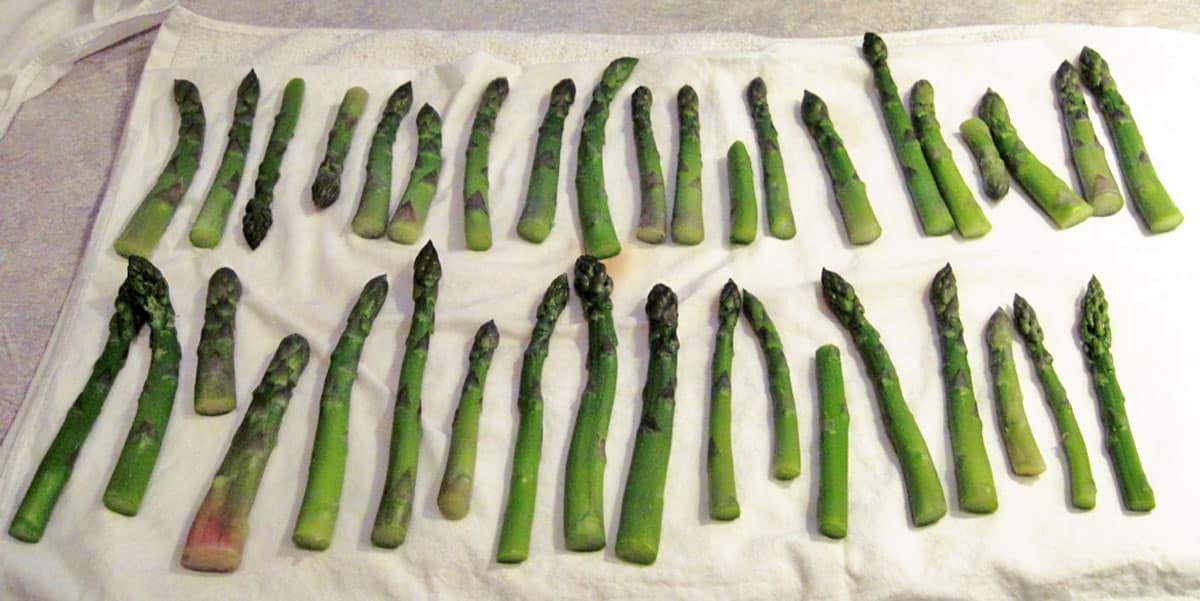
Spread the blanched asparagus in a single layer on a baking sheet. (I like to line the sheet with reusable parchment paper so the spears release easily.) Freeze the asparagus for several hours or overnight. This keeps the spears in good condition and makes them easier to pack for freezing.
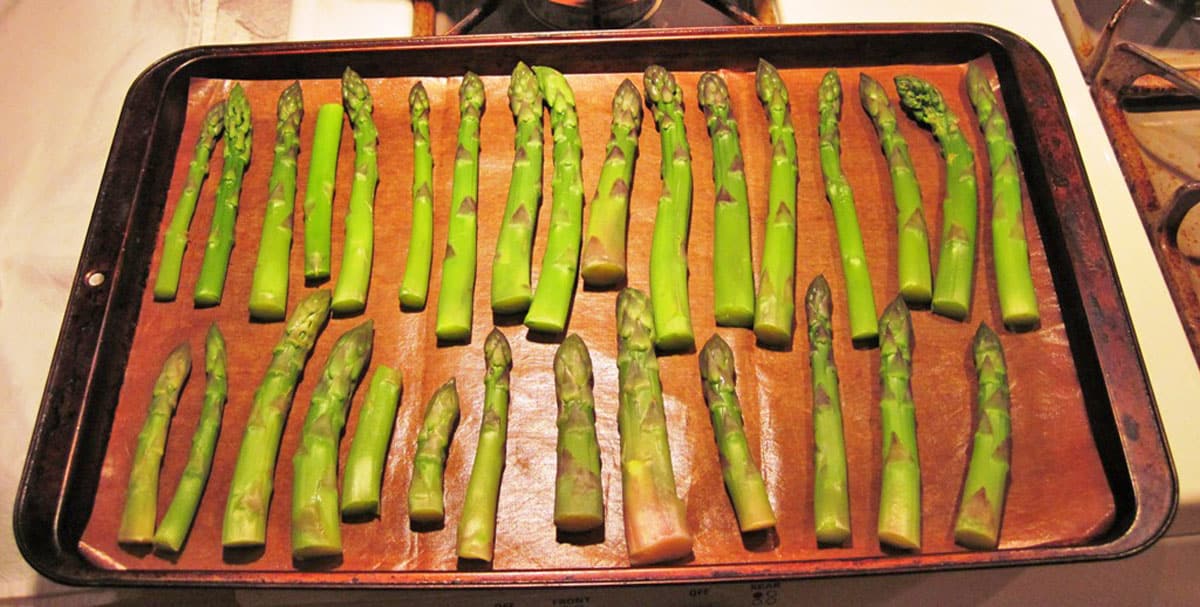
Transfer the asparagus to freezer bags, can-or-freeze jars, plastic freezer boxes or vacuum bags. Seal, label, and freeze.
For best quality with zipper freezer bags or other non-vacuum sealed containers, use within 6 months. Vacuum sealed produce will easily last a year in good condition.
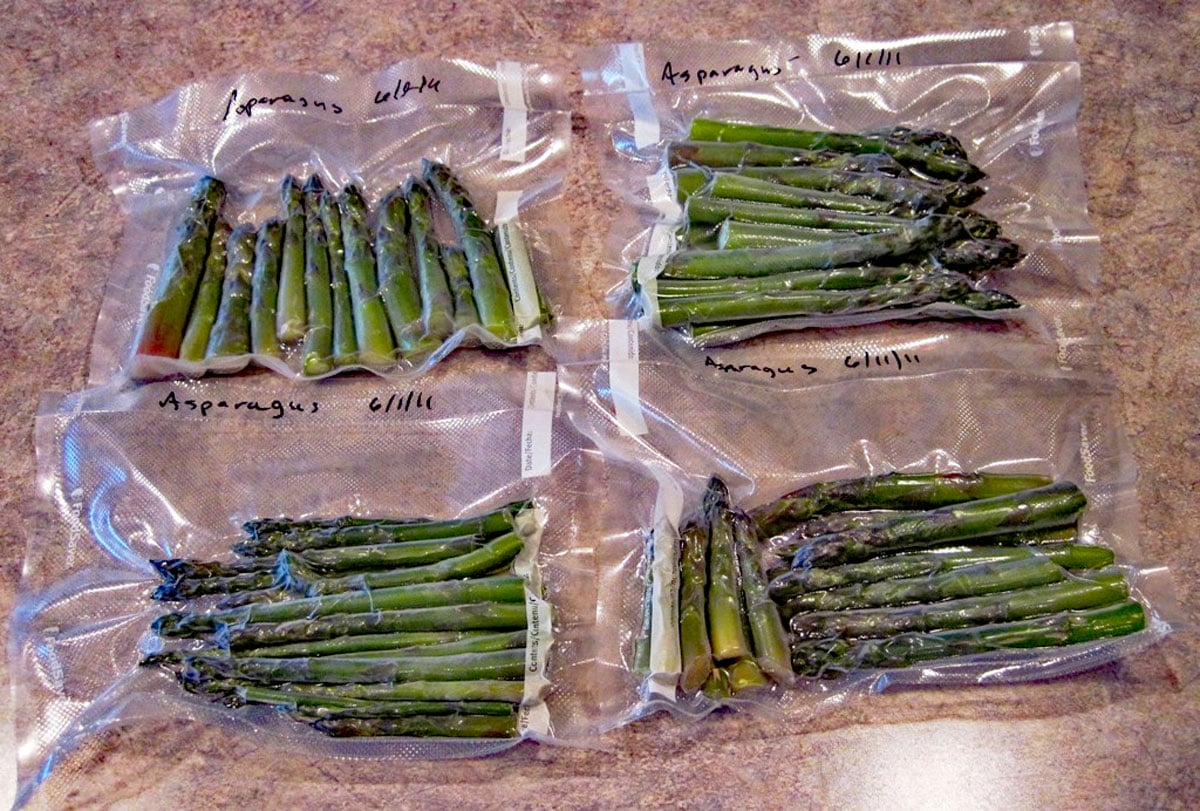
We vacuum seal frozen asparagus in an assortment of package sizes. Vacuum sealing helps to prevent ice crystal buildup, and keeps the spears in the best condition.
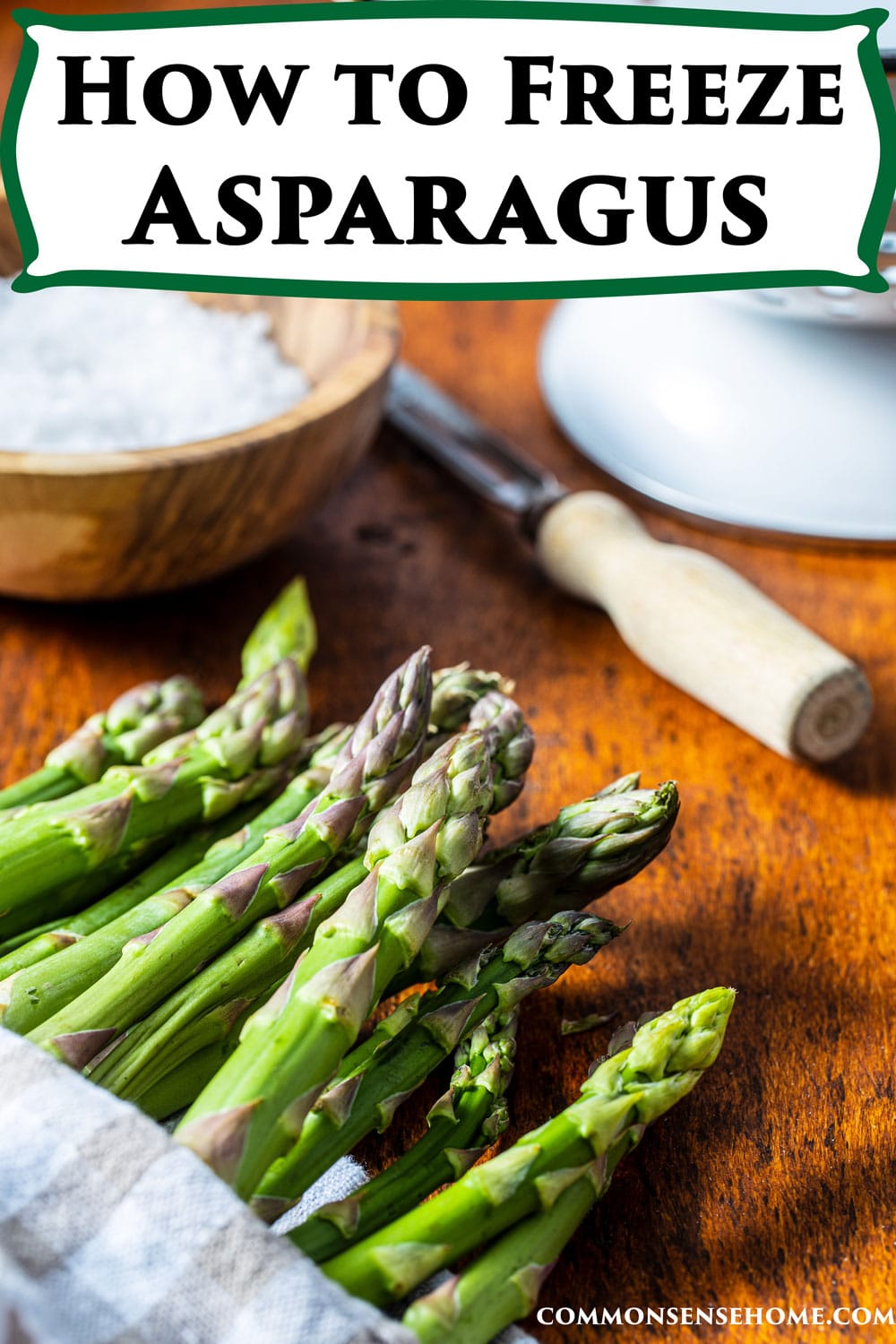
How to Freeze Cooked Asparagus
If you have leftover cooked asparagus from a meal, it will keep several days in the refrigerator. For longer storage, pack into a freezer safe bag or container. Squeeze out as much air as possible, date, and label. For best quality, use within two to three months.
More Ways to Use and Store Asparagus
If you’ve visited the site before, you know that I’m all about having options. Using different storage methods provides different tastes and textures. It also increases your resilience factor. Many types of storage is better than just one.
How to Store Asparagus in the Refrigerator
Pickled Asparagus (No Canning Required)
Roasted Asparagus with Parmesan

This article is written by Laurie Neverman. Laurie grew up in the kitchen, learning baking and home cooking from her momma. At age 15, she and her mom and two sisters created Irene’s Custom Cakes & Catering, which was her summer job through most of high school and college.

